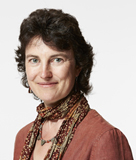
Professor Rebecca Fitzgerald has recently been elected as a Fellow of the Academy of Medical Sciences and awarded an NIHR professorship to continue her translational work on identifying patients at risk for cancer of the oesophagus through molecular abnormalities detected on a non-endoscopic device called the CytospongeTM and through the use of endoscopic molecular imaging modalities. This work builds on the work supported through her Lister Fellowship and enables the necessary clinical trials to be performed to maximise the chances of these technologies being introduced into clinical practice. As a recognition of her work in this field Rebecca has been elected to a Fellowship of the Academy of Medical Sciences.
Former Fellows Professor Gurdyal Besra, University of Birmingham and Professor Magdalena Zernicka-Goetz have been elected Fellows of the Academy of Medical Sciences.

Professor Gurdyal Besra’s team have contributed over the past several years in our understanding of the chemical characteristics of the cell wall of TB, and definition of the basic enzymology surrounding the essentiality of ‘cell envelope biogenesis’. His studies have also paved the way to the elucidation of the mode of action of the front-line anti-tubercular drugs isoniazid and ethambutol. His more recent studies have used genomic tools to unravel potentially new drug targets and ‘hit-to-leads’ for TB therapy, including studies related to the potential utilisation of tailored glycolipid analogues as adjuvants/vaccines, to provide novel therapeutics in a wide range of disease states.

Professor Magdalena Zernicka-Goetz has been elected Fellow of the Academy of Medical Sciences for her work on the the early development of the mouse embryo. Magdalena has discovered that the observed differences that arise between the first cells to follow different fates at the 8-16 cell stage are anticipated by epigenetic events that take place as early as the 4-cell stage. She now works upon the mechanisms underlying these first fate choices. In her most recent work her group have developed an embryo culture system that permits the development of embryos through stages previously hidden from view as they implant into the mother’s uterus. Time-lapse filming of these events reveals a remarkable capacity of the inner cells of the blastocyst to undergo self-organisation into a structure that anticipates the major body plan.
